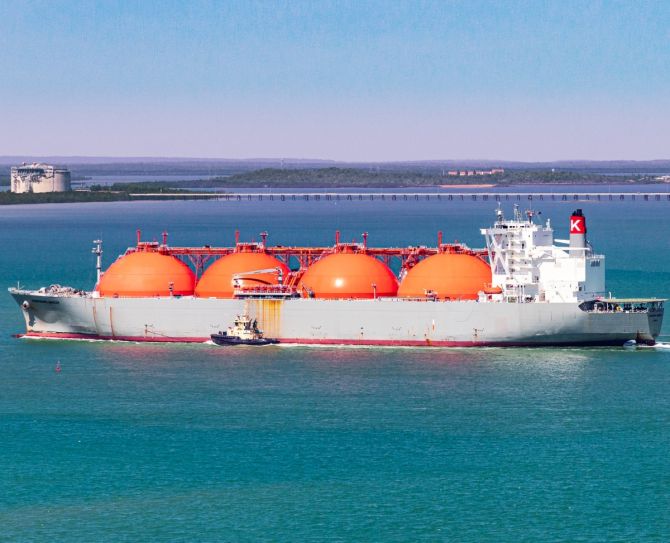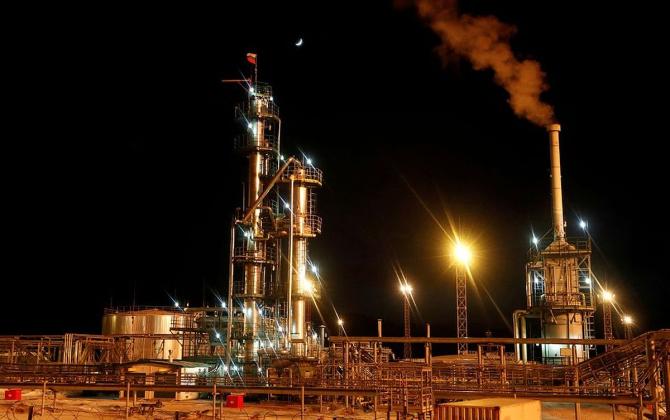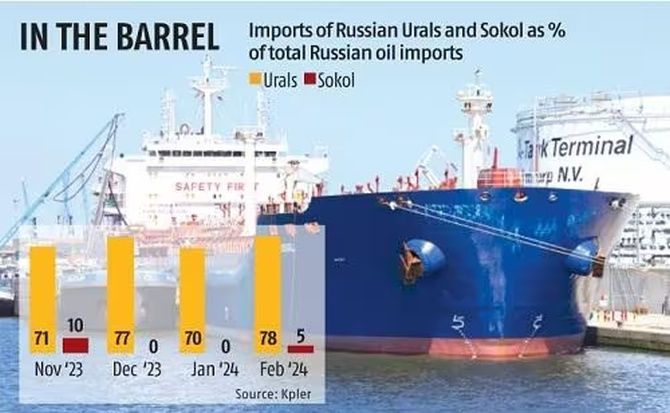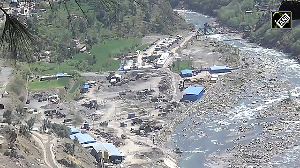Urals and Sokol accounted for every 4 out of 5 barrels of Russian supplies to India last year.

After targeting vessels carrying premium Russian crudes like Sokol to India that violate a sanctioned price cap in December, Washington is now gunning for tankers transporting the cheaper, Russian benchmark Urals, enforcing new sanctions every month.
Taken together, Urals and Sokol accounted for every 4 out of 5 barrels of Russian supplies to India last year, and 30 per cent of the country's overall crude imports.
Washington's latest sanction order came on February 8, when the office of foreign assets control, under the US treasury department, sanctioned three United Arab Emirates-based shipping/trading firms -- Oil Tankers SCF Mgmt FZCO, Zeenit Supply and Trading, and Talassa Shipping and Liberia-based NS Leader Shipping -- for supplying Russian crude above the $60 per barrel price cap, enforced by the G7 group of nations in January 2023.
More sanctions are expected that might further complicate Russian trade flows, industry officials said.
Citing vessel tracking data Bloomberg said that nearly half of the vessels sanctioned for carrying Russian crude are idle.
Over 50 vessels that previously carried Russian barrels have been sanctioned since October 2023, either directly or through their owners, according to data from the US Treasury.

Liberia-registered tanker NS Leader, which transported a combined 450,000 barrels last year on four trips to India bearing largely Urals, had to abandon plans for a fifth after sanctions were announced on its owner NS Leader Shipping.
NS Leader's last voyage was delivering Urals, a medium, sour crude parcel to the HMEL Mundra terminal on January 19, data from market intelligence agency Kpler showed.
Data showed that it was scheduled to load an Urals cargo at Primorsk this month to discharge at the Sikka port in late March, but that trip was cancelled after the latest US sanctions.
A Mumbai-based refining official said they will not entertain any sanctioned vessel.
Captain Kostichev, Pavel Chernysh and Sakhalin Island, which have all carried both Urals and Sokol cargoes to India in the past year, are now owned by the now sanctioned Oil Tankers SCF, said Serena Huang, head of Asia-Pacific market analysis for Vortexa.
Sakhalin Island, which carried at least three cargoes of Urals and two of Sokol between April and November, is displayed as floating storage laden with Sokol cargo, according to data from Vortexa and Kpler.
Pavel Chernysh last carried a Sokol cargo to Paradip in November.
Industry sources said that after sanctions were announced it might transfer its cargo to a non-sanctioned cargo for delivery to India.
Captain Kostichev shows in ballast, where tankers use a huge amount of ballast water after unloading cargoes.
But all these three vessels are effectively owned by Dubai-based Sun Ship Management, which came under US secondary sanctions in December.
It is a common practice among Russian shipping companies to transfer vessels to other shell companies or create new firms to evade sanctions, industry sources said.

Urals comprised nearly 70 per cent of India's 1.53 million b/d of Russian oil purchases in January, and a little less than a quarter of India's overall crude import.
Last year, Urals, became a staple for Indian refiners, accounting for 68 per cent of Russian volumes at 1.22 million bpd.
Sokol, India's second most-supplied Russia grade, was at around 8 per cent.
Urals made up 72 per cent of Russian supplies this year until mid-February, and Sokol was just 2 per cent.
In an interview with the RT news agency, Russian ambassador to India, Denis Alipov, said that US officials are pursuing the goal of tearing New Delhi away from Moscow, making threats of secondary sanctions, forcing some Indian partners to exercise caution.
A Russian consulate official told Business Standard that the US was tightening sanctions, but Russia was working on logistical options to ensure deliveries to India.
India did not receive any Sokol cargoes in December and January compared to over 5 million barrels in November after Washington sanctioned Dubai-based Sun Ship Management in December.
Vessels owned by Sun Ship were the biggest suppliers of Sokol crude to India.
After the December restrictions, many Sun Ship tankers including Kazan, Ligovsky Prospekt, NS Century, Krymsk and Sakhalin Island, were diverted from India.
India's refineries have been unable to accept some cargoes from Russia because of new Western sanctions targeting specific vessels, Indian Oil Secretary Pankaj Jain told reporters on the sidelines of the India Energy Week in Goa.
India cannot receive cargoes from sanctioned ships regardless of whether it is cheaper Urals that trades below the price cap, or higher-priced Sokol volumes, which tends to trade at more than $70/bbl on a free-on-board basis, Jain said.
Unlike oil from Iran or Venezuela, deliveries of Russian crude to India are not currently under US sanctions, Jain said. But if the vessels have been sanctioned by Washington, then India cannot receive those cargoes.
Washington's impact on Russian shipping companies and traders is at a global level, but the impact is greatest on India.
China, Russia's biggest oil market, gets some of the crude via pipeline and for the rest it pays in yuan.
Indian buyers must arrange hard currency like the dollar or dirham, said a refining official, which leaves them depending on banks to approve the transactions.
Feature Presentation: Rajesh Alva/Rediff.com












 © 2025
© 2025